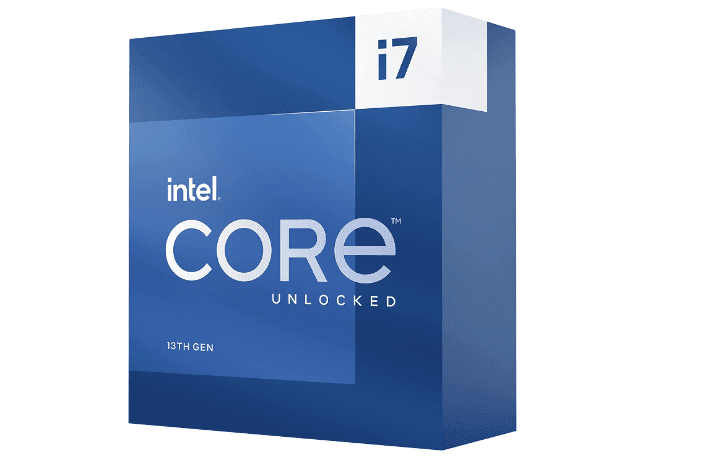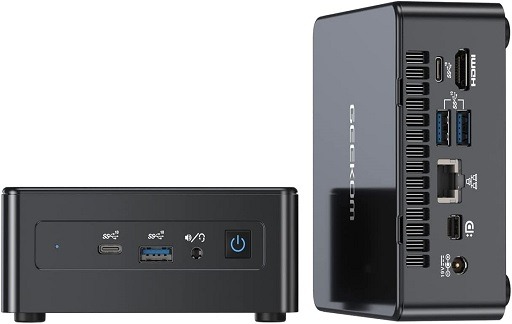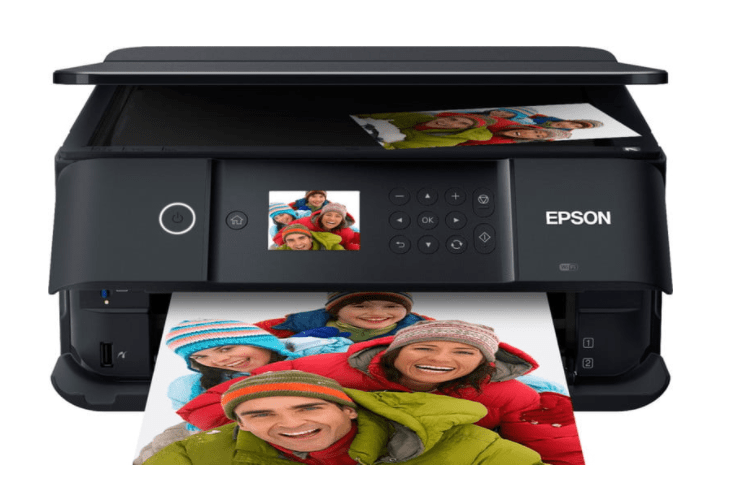Intel Core i7-13700K processors are regarded as the company’s best-value processors, providing a balance of excellent performance and affordability. The latest 13th Generation Intel Core i7-13700K desktop CPU is expected to introduce a matured hybrid core-touting desktop CPU with impressive capabilities.
In this review, we will look at the Core i7-13700K and compare it to last year’s Core i7-12700K as well as the new AMD Ryzen 7 7700X. Intel is still using its older 10nm manufacturing process, which puts it behind AMD’s 7000 series right away, but the company has previously worked wonders.

Intel Core i7-13700K Raptor Lake
Raptor Lake is the codename for Intel’s 13th Generation processor architecture. The new processors, such as the Core i7-13700K, are based on Intel’s 10nm manufacturing platform, the same as the 12th Gen series. They have a hybrid core design. The processor under consideration in this review has an equal number of efficient and performance cores.
13th Gen processors, like their predecessors, support both DDR4 and DDR5 memory modules, giving you more options when building your own PC. Although the same LGA 1700 socket is used, Intel was able to achieve significant gains in core count, clock speed, and cache size, most notably with the Core i9-13900K.
Here, Intel showed how the i9-13900K could hit 8.0GHz when overclocked using liquid nitrogen. So we’re expecting some big performance numbers, especially when compared to the AMD Ryzen 7 7700X.
You may also like AMD Ryzen 6000 CPU: The Performance Punch Processor
Intel Core i7-13700K Performance
For testing the Core i7-13700K, we made full use of the latest Z790 chipset. The foundation is the ASUS ROG Strix Maximus Z790 Hero, which is joined by 32GB of DDR5-6600 RAM and the powerful NVIDIA GeForce RTX 4090. Apart from a few upgrades to the USB array, there is no discernible difference in performance between the Z690 and Z790.
The outcomes are impressive. Intel’s newest processor family is neck and neck with AMD’s Ryzen 7000, and the Core i7-13700K is nearly as good as the Ryzen 9 range. It’s a monster whether you’re looking to build the best gaming PC or a creative desktop. What’s more intriguing is how the Core i7-13700K easily outperforms the Core i9-12900K in a variety of synthetic benchmarks. Both processors have the same number of physical cores, pushing the boundaries of what is possible at lower prices.
Temperatures matching AMD Ryzen 7000 were recorded using the same Asetek-based 360mm AIO cooler used with other CPUs. Intel and AMD are making full use of the thermal headroom, and the Intel Core i7-13700K frequently reaches TjMax at 100 degrees Celsius when pushed hard.
Temperatures for gaming are kept under control at 60-80 degrees Celsius, depending on the PC game and how demanding it is on the CPU. The GPU is the most important factor in frame rates, but a good processor is required to handle the best graphics card you can afford. The 13700K is more than capable. When overclocked, the Core i7-13700K can easily pull up to 200W.
You may also like AMD Ryzen 7000: Everything you need to know
Intel Core i7-13700K Alternatives
The Intel Core i7-13700K has two major competitors. The first is Intel’s Core i7-12700K processor. Although this processor is an older model, its internals is comparable, including the same number of cores and threads. Although Intel’s hybrid core design has matured for 13th Generation CPUs, the Core i7-12700K remains a solid processor.
Intel increased the total number of E-cores from 12 to 16 with the Core i7-13700K. Because of the additional physical cores, the base frequencies have been slightly reduced, but Intel has managed to work in faster boost speeds, as well as an impressive 5.4GHz max turbo boost, compared to only 5.0GHz with the 12700K.
Then there’s the AMD Ryzen 7700X, which the Intel Core i7-13700K easily outperforms in a variety of applications. AMD is lagging behind in terms of core and thread counters. The Ryzen 7 7700X has only eight cores and sixteen threads. It, too, can boost to 5.4GHz, but Intel outperforms in both multi- and single-core performance.
Intel was able to take what made the 12700K so good and turn it up to 11 in order to extract even more from the older architecture. When Intel is able to compete on the process node front again, we can expect even more efficiency gains.
When compared to Ryzen 7000, Intel has a slight advantage with the 13th Generation because AMD had to switch sockets from AM4 to AM5. The Z690 chipset is now in its second year of support from Intel, allowing those with 12th Gen systems to upgrade without the need for additional components.
You may also like The Best Motherboards you can buy
Intel Core i7-13700K price and availability
Intel’s 13th Gen processors, like the 12th Gen line-up, have a hybrid core configuration, with new performance cores (P-cores) and efficient cores (E-cores). The first is the main core, which is found in traditional processors and handles the majority of the calculations. The inclusion of E-cores distinguishes Intel processors from predecessors and AMD processors.
These less powerful cores are in charge of everything considered a background task. This configuration enables Intel 12th and 13th Generation processors to perform better in multi-tasking environments such as streaming PCs. The latest Core i7-13700K has 16 cores and 24 threads, which is an increase from 12 and 20 in the Core i7-12700K.
The performance cores can boost to 5.4GHz, while the efficient cores can reach 4.2GHz. Full DDR4 and DDR5 RAM support are provided, allowing you to keep your existing best RAM if desired. A total of 30MB of cache is available, and a TjMax of 100 degrees Celsius allows this K series processor to be overclocked.
All of this power comes at a cost, measured in watts. The CPU has a TDP of 125W, but the Intel Core i7-13700K can be overclocked to 253W. That’s a lot of power, especially when combined with a high-power GPU like the NVIDIA GeForce RTX 4090.
The Intel Core i7-13700K costs $439.99, which is about $40 more than the AMD Ryzen 7 7700X. However, the performance improvement is worth the extra 10% cost.
CamRojud may earn a certain commission on products purchased via our links, which supports our effort on this content.
Would you like to read more about Intel Core i7-13700K-related articles? If so, we invite you to take a look at our other tech topics before you leave!
![]()













